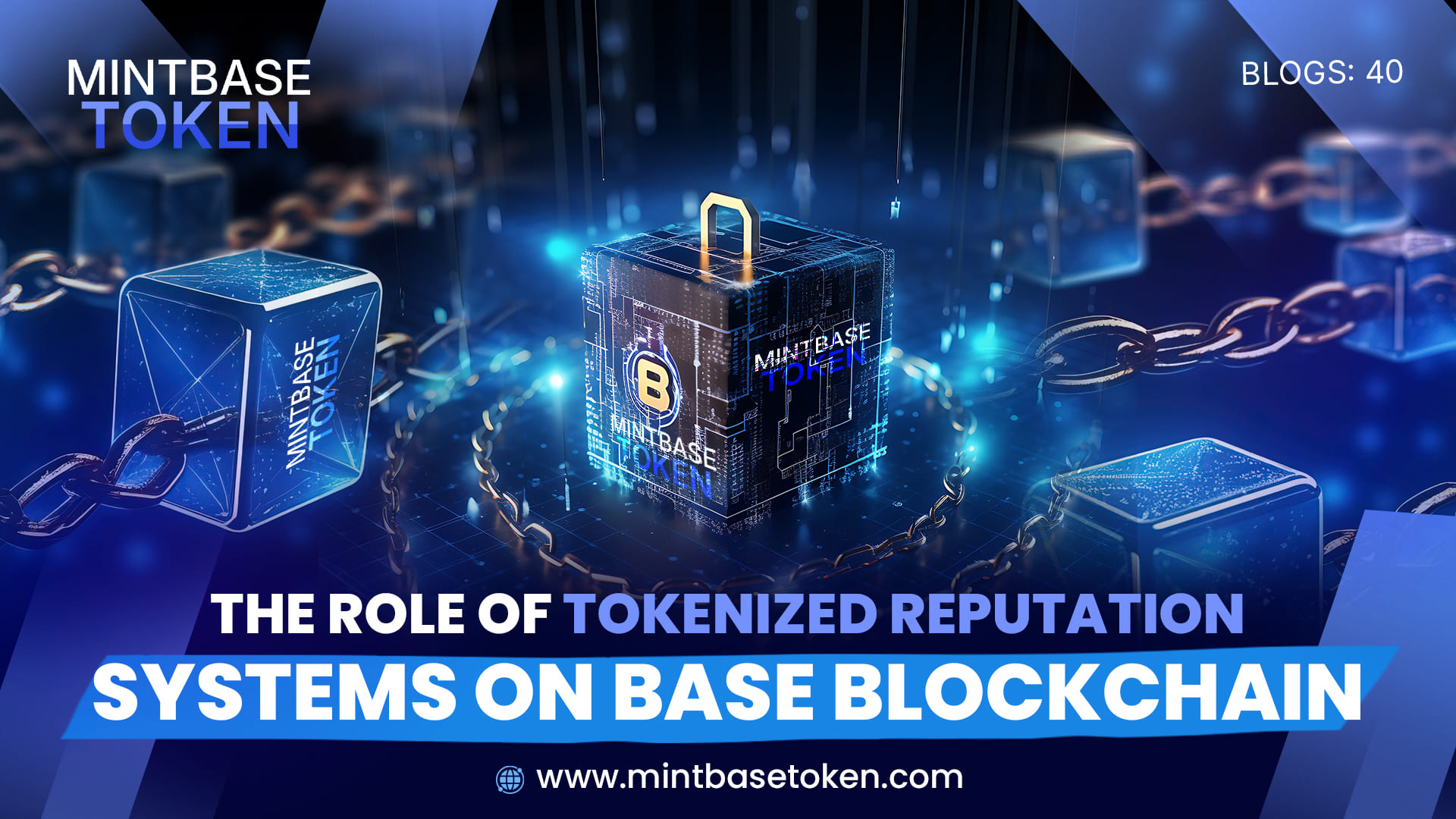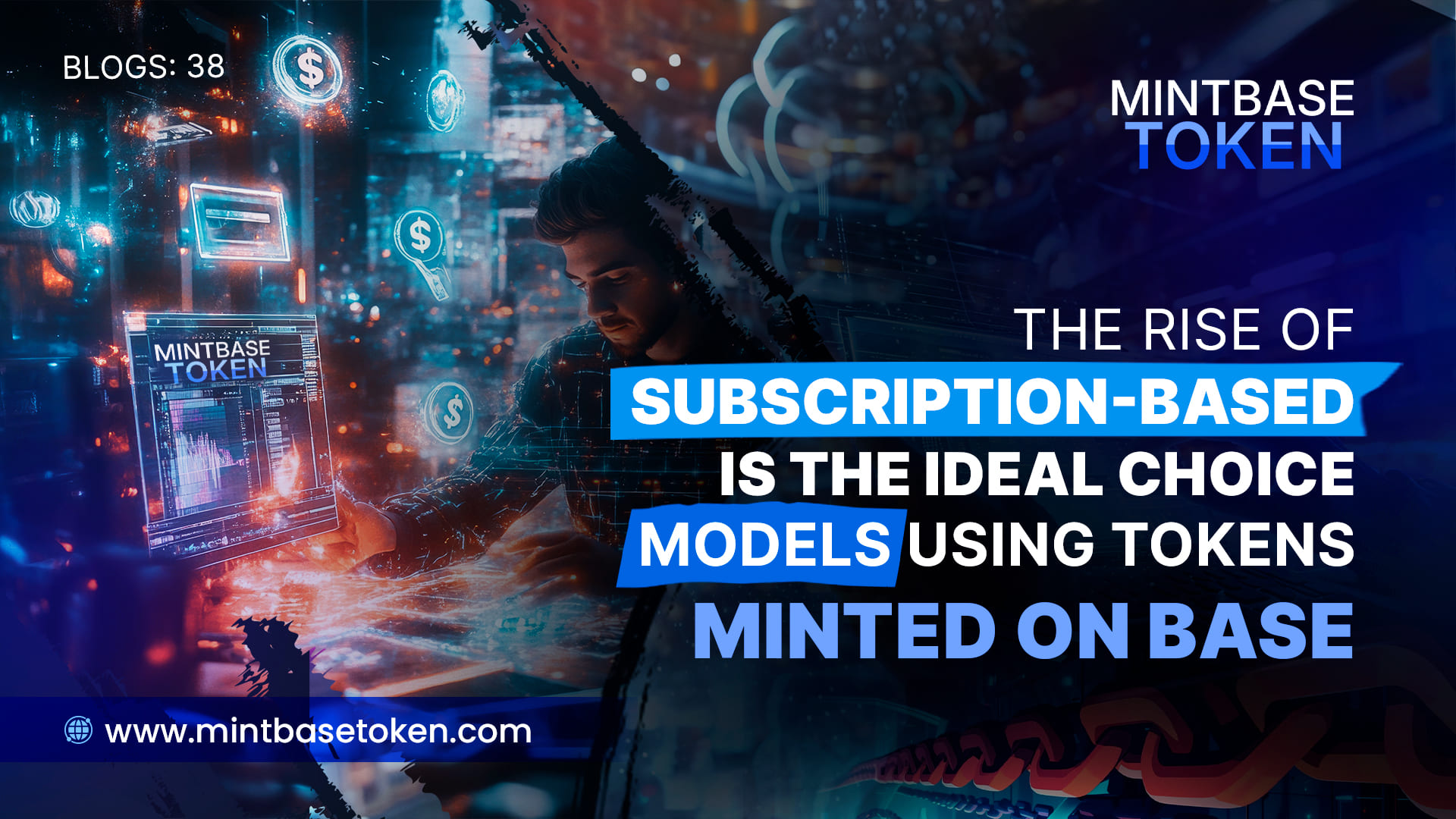November 11, 2024
Creating Value: The Role of Base Tokens in Decentralized Applications
The rise of blockchain technology has paved the way for decentralized applications (dApps) that offer enhanced security, transparency, and user control. At the core of these dApps are tokens that drive functionality and incentivize participation. Base tokens, native to the Base blockchain, are playing a pivotal role in creating value within these decentralized ecosystems. This article explores how Base tokens contribute to the functionality, sustainability, and success of dApps, benefiting both developers and users.
1. Understanding Base Tokens and Their Utility
Base tokens are digital assets designed to serve multiple purposes within the Base blockchain ecosystem:
- Medium of Exchange: Facilitate transactions within dApps, allowing users to purchase services, access features, or trade assets.
- Incentive Mechanisms: Reward users for participating in the network, such as contributing content, securing the network, or providing liquidity.
- Governance Rights: Grant holders the ability to participate in decision-making processes, influencing the future development of the dApp.
2. Enhancing User Engagement and Loyalty
Tokens can significantly boost user engagement by offering tangible rewards:
- Rewards Programs: Users earn tokens for specific actions, encouraging ongoing participation and contribution to the dApp.
- Staking Opportunities: Users can stake their tokens to earn passive income, fostering long-term commitment to the platform.
3. Facilitating Decentralized Governance
Base tokens enable a democratic approach to platform development:
- Voting Mechanisms: Token holders can vote on proposals, ensuring the dApp evolves according to the community’s needs.
- Community Ownership: Widespread token distribution creates a sense of shared ownership and responsibility among users.
4. Driving Economic Models within dApps
Tokens are integral to the economic frameworks that sustain dApps:
- Transaction Fees: Tokens are used to pay fees, supporting network maintenance and incentivizing validators.
- Token Burns: Reducing token supply through burns can increase value for holders and contribute to a deflationary model.
5. Promoting Network Effects and Adoption
The utility of Base tokens can accelerate the growth of a dApp:
- Liquidity and Trading: Tokens listed on exchanges attract investors and increase the platform’s visibility.
- Interoperability: Tokens that interact with other dApps or blockchains enhance the overall ecosystem’s value and user base.
6. Empowering Developers and Innovators
For developers, Base tokens offer avenues for innovation and monetization:
- Fundraising: Token sales provide capital to develop and launch dApps without traditional financing.
- Monetization Strategies: Implementing token-based payment models for premium features or services creates sustainable revenue streams.
7. Case Studies of Successful Base Token Integration
a. Decentralized Finance (DeFi) Platforms
- Yield Farming: Users provide liquidity in exchange for token rewards, enhancing platform liquidity.
- Lending and Borrowing: Tokens facilitate peer-to-peer lending markets with competitive interest rates.
b. Gaming and NFT Marketplaces
- In-Game Economies: Tokens act as in-game currency for purchasing items, skins, or characters.
- NFT Transactions: Base tokens are used to buy, sell, and trade non-fungible tokens within the marketplace.
8. Challenges and Best Practices
While integrating tokens offers numerous benefits, challenges must be addressed:
- Regulatory Compliance: Ensure token models adhere to legal standards to avoid future complications.
- Market Volatility: Implement mechanisms to manage token price fluctuations to maintain a stable economy.
- Security Risks: Protect against smart contract vulnerabilities and external threats through regular audits.
Best Practices:
- Clear Tokenomics: Define the token’s role and economic model transparently.
- Community Involvement: Engage users in development decisions to build trust and loyalty.
- Ongoing Development: Continuously update and improve the dApp to meet user needs and stay competitive.
Conclusion
Base tokens are essential components that drive value creation in decentralized applications. They not only facilitate transactions and incentivize user participation but also empower developers to build sustainable and innovative platforms. By understanding and effectively leveraging the role of Base tokens, both developers and users can contribute to a thriving ecosystem that embodies the true potential of decentralized technology.





